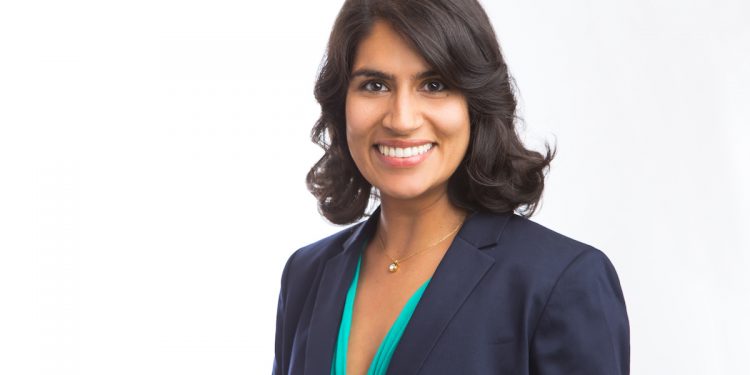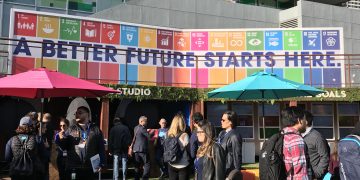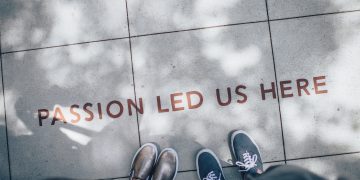Rehana Nathoo: Impact Investing at the Case Foundation
“A life is not important except in the impact it has on other lives”. This is one of Rehana Nathoo’s, favourite quotes and a good reminder to us all; life is not just about ourselves. In her role as VP of Social Innovation, Rehana focuses on impact investing at the Case Foundation, an organization that invests in people and ideas that can change the world. With an international development background Rehana has worked her way up the impact investing career ladder, first at Rockefeller Foundation, then at BNY and now at the Case Foundation. We talk about how and why she came into the profession, advice she has for others, and a look to the future of impact investing.
When did you know you wanted to work in impact investing?
My first job after graduating from the Whitehead School was with the UN Capital Development Fund in Uganda and Tanzania. While there, our team structured projects in the agriculture and energy sectors, specifically connecting co-operatives of entrepreneurs with local financing sources and bringing local government along with us. It was truly a tri-sector approach to development.
While I loved seeing the impact on the ground, I was much more interested in the potential to rethink the financial tools we use for development – a systems-wide change. I knew that I needed a more holistic understanding of how profit and purpose could come together within existing financial systems – hence the jump into impact investing. I’ve been in this space ever since.
Can you describe your job and what a typical day is like?
For the most part, I think of my role as a translator, and that totally fits with the Case Foundation’s role as “movement catalyzers.” It has an effect on how we write about the space, the places we go, and the people we talk to.
A typical day probably has a decent amount of writing and travelling to meet that objective. We’re also constantly pushing ourselves to identify the gaps in the ecosystem, and thinking creatively about how to fill them.
One of the projects I’ve worked on during my time at the Case Foundation is the Impact Investing Network Map. The Network Map – a 2.5 year endeavor led by CF – is a data visualization of impact investing transactions to date. Our data partners – ImpactSpace and Crunchbase – gather publicly available information to help populate the Network Map, allowing the Case Foundation to begin to demonstrate the true breadth and scope of the impact investing universe. This easy to use, publicly available tool is a prime example of how we attempt to solve problems holistically. We hope to bring investors and entrepreneurs across the journey of inspiration, education, and activation, in service of crowding in more people, dollars, and transparency into impact investing.
Throughout your career you’ve been involved in leading and initiating social finance programs – first at the Rockefeller Foundation then at BNY and now at the Case Foundation. What advice would you give to someone looking to have a career like yours one day?
Our CEO, Jean Case, likes to say that the path to success in your career journey is never a straight line. It’s filled with potholes along the way and pivots at every turn. That couldn’t be truer in impact investing. At the time I jumped in, impact investing was just finding its sea legs. It was founded by the work of some truly trailblazing organizations, but as the movement has grown there certainly wasn’t a clear and linear path to get there.
A new field can actually mean old rules. So many organizations are struggling with balance in who they recruit. Do they want a traditional development person or a mainstream finance person? The best thing I’ve learned is that you can learn to be both. I came from the development side and used my work experiences and personal time to fill in the blanks. I consumed online course after online course to fill the technical gaps. I also sought out work experiences way beyond my bubble to teach me the things I didn’t know. What you get out of the job is exactly what you put into it. If 100% of your effort is going in, your gain is the same. Those are some incredible odds.
What tips would you give a social impact professional on her/his first day of work?
Go the extra mile, but do it in a way that adds real value to the organization and feels authentic to you. The best teammate I ever worked with was an intern. She had a distinct and creative way of thinking that I really appreciated. Every task she did she brought her own intellect, thoughtfulness and humility. It absolutely jived with my own work style and I totally forgot that she was an intern until her last day. Your position in the field or status in the totem-pole is not a limiting factor for critical thinking. Bring your ideas to the table, be thoughtful and remember to try to add value in every task you take on. Sometimes adding value is just listening and reflecting. It’s not always saying something to say something. That genuine demonstration of effort and commitment speaks volumes.
In the near future, we’re going to witness the biggest generational wealth transfer from Baby Boomers to Millennials (some estimate up to $30 trillion over the next three decades). What do you think that will mean for the future of impact investing and jobs.
This trend is going to be a game changer. Research shows that women and millennials believe in a world where profit and purpose are inextricably linked. These groups of decision makers have a more connected understanding of how financial returns and social impact can co-exist. They are demanding – from their advisors, families, and networks – better solutions that can deliver on both expectations. This belief can help us ensure that the most sustainable and thoughtful solutions receive our attention.
There’s a lot of work that we – as a community of practitioners – need to do to put the tools for action into the hands of these powerful new decision makers. If we can succeed in creating these on-ramps, we could see dynamic shifts in the way we work, consume, and invest.
Do you have a philosophy that live/work by?
A good friend of mine challenged me recently to think about my values – what are the ideas that are fundamental to me? I narrowed it down to six core values, they include a commitment to growing others, honouring personal authenticity and letting positive impact drive my decision making.
One of my favorite quotes a Jackie Robinson-ism: “A life is not important except in the impact it has on other lives.”
Liked what Rehana had to say? You can meet her in person (well at least hear her in person) at the Social Finance Forum at MaRS in November talking all things Impact Investing. She explains with her fellow panelists how impact investors are shaking up global markets.





No Comment